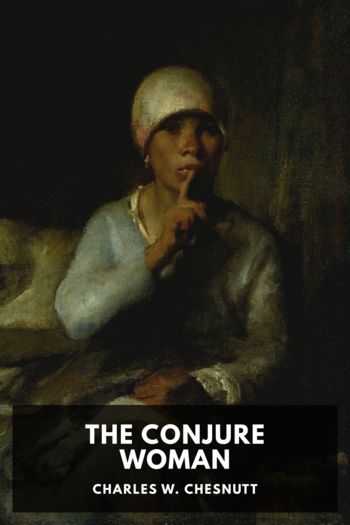The Lives of the Caesars, Suetonius [best book club books for discussion .TXT] 📗

- Author: Suetonius
Book online «The Lives of the Caesars, Suetonius [best book club books for discussion .TXT] 📗». Author Suetonius
Though he spoke Greek readily and fluently, yet he would not use it on all occasions, and especially eschewed it in the senate; so much so that before using the word “monopolium,”337 he begged pardon for the necessity of employing a foreign term. Again, when the word ἔμβλημα338 was read in a decree of the senate, he recommended that it be changed and a native word substituted for the foreign one; and if one could not be found, that the idea be expressed by several words, if necessary, and by periphrasis. On another occasion, when a soldier was asked in Greek to give testimony, he forbade him to answer except in Latin.
Twice only during the whole period of his retirement did he try to return to Rome, once sailing in a trireme as far as the gardens near the artificial lake,339 after first posting a guard along the banks of the Tiber to keep off those who came out to meet him; and again coming up the Appian Way as far as the seventh milestone. But he returned after merely having a distant view of the city walls, without approaching them; the first time for some unknown reason, the second through alarm at a portent. He had among his pets a serpent, and when he was going to feed it from his own hand, as his custom was, and discovered that it had been devoured by ants, he was warned to beware of the power of the multitude. So he went back in haste to Campania, fell ill at Astura, but recovering somewhat kept on to Circeii. To avoid giving any suspicion of his weak condition, he not only attended the games of the soldiers, but even threw down darts from his high seat at a boar which was let into the arena. Immediately he was taken with a pain in the side, and then being exposed to a draught when he was overheated, his illness increased. For all that, he kept up for some time, although he continued his journey as far as Misenum and made no change in his usual habits, not even giving up his banquets and other pleasures, partly from lack of self-denial and partly to conceal his condition. Indeed, when the physician Charicles had taken his hand to kiss it as he left the dining-room, since he was going away on leave of absence, Tiberius, thinking that he was trying to feel his pulse, urged him to remain and take his place again, and prolonged the dinner to a late hour. Even then he did not give up his custom of standing in the middle of the dining-room with a lictor by his side and addressing all the guests by name as they said farewell.
Meanwhile, having read in the proceedings of the senate that some of those under accusation, about whom he had written briefly, merely stating that they had been named by an informer, had been discharged without a hearing, he cried out in anger that he was held in contempt, and resolved to return to Capreae at any cost, since he would not risk any step except from his place of refuge. Detained, however, by bad weather and the increasing violence of his illness, he died a little later in the villa of Lucullus, in the seventy-eighth year of his age and the twenty-third of his reign, on the seventeenth day before the Kalends of April, in the consulship of Gnaeus Acerronius Proculus and Gaius Pontius Nigrinus.
Some think that Gaius gave him a slow and wasting poison; others that during convalescence from an attack of fever food was refused him when he asked for it. Some say that a pillow was thrown upon his face, when he came to and asked for a ring which had been taken from him during a fainting fit. Seneca writes that conscious of his approaching end, he took off the ring, as if to give it to someone, but held fast to it for a time; then he put it back on his finger, and clenching his left hand, lay for a long time motionless; suddenly he called for his attendants, and on receiving no response, got up; but his strength failed him and he fell dead near the couch.
On his last birthday he dreamt that the Apollo of Temenos,340 a statue of remarkable size and beauty, which he had brought from Syracuse to be set up in the library of the new temple,341 appeared to him in a dream, declaring that it could not be dedicated by Tiberius. A few days before his death the lighthouse342 at Capreae was wrecked by an earthquake. At Misenum the ashes from the glowing coals and embers which had been brought in to warm his dining-room, after they had died out and been for a long time cold, suddenly blazed up in the early evening and glowed without cessation until late at night.
The people were so glad of his death, that at the first news of it some ran about shouting, “Tiberius to the Tiber,” while others prayed to Mother Earth and the Manes to allow the dead man no abode except among the damned. Still others threatened his body with the hook and the Stairs of Mourning, especially embittered by a recent outrage, added to





Comments (0)